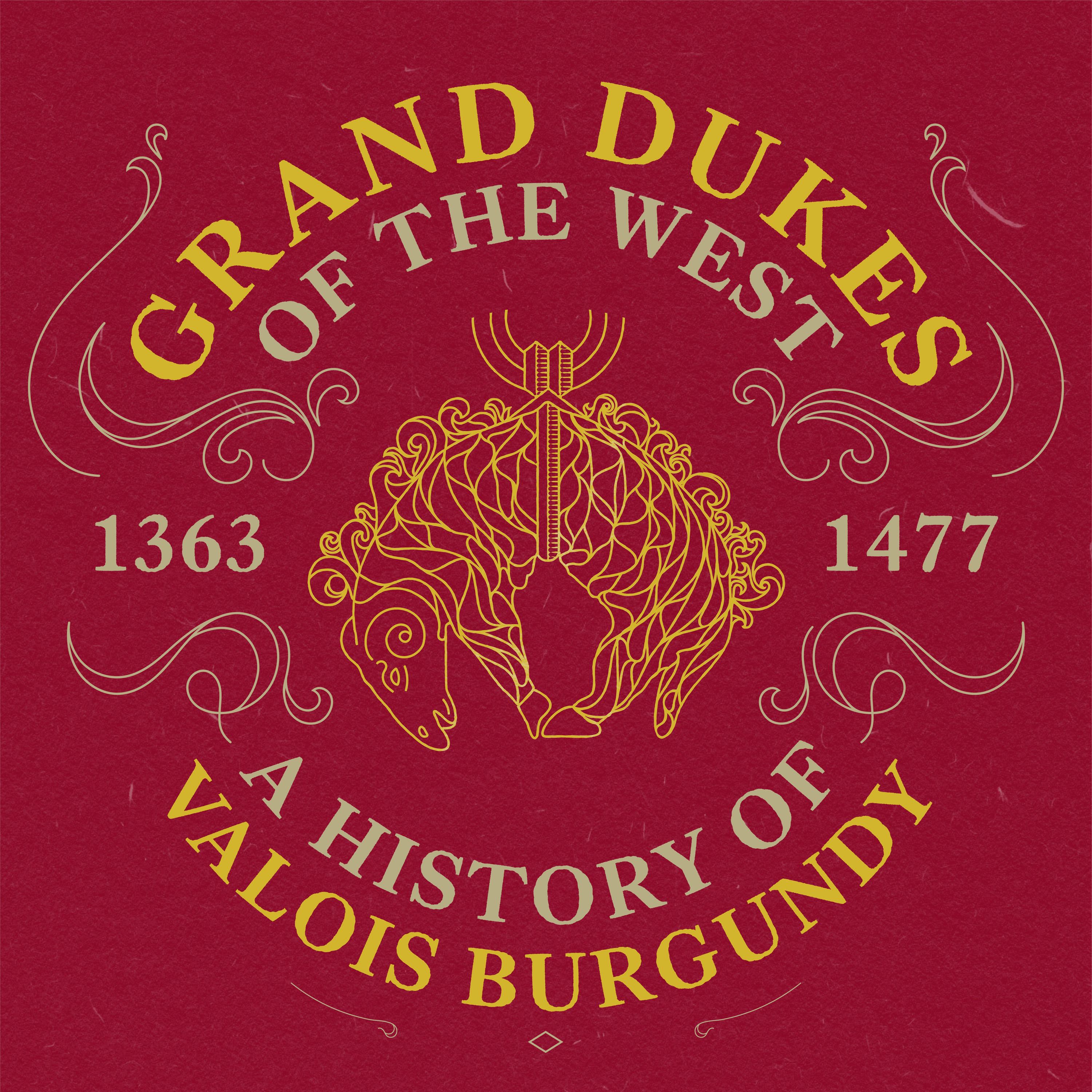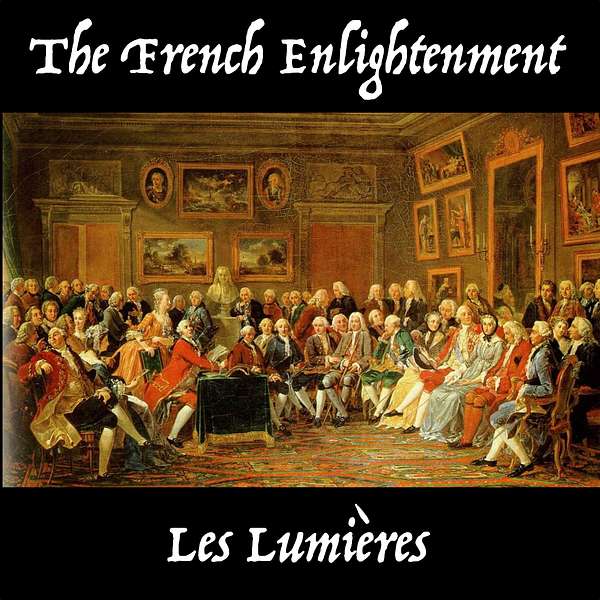
La Fayette, We Are Here!
La Fayette, We Are Here!
The French Enlightenment: Les Lumières
We live in an enlightened world. We owe a lot to the men and women of the XVIIIth century and what they gave us. During this period, all over Europe, but especially in France, sciences, politics, literature, art, philosophy and many other aspect of society were being dissected, studied and written on.
You know their names: Voltaire, Rousseau, Diderot, Montesquieu, du Châtelet, Lavoisier, de Gouges and others. They are the ones who laid the foundation for the very States we live in, at least in the democratic parts of the world. Modern governments and societies derive directly from the work of these people that we consider part of the Lumières era.
Let me give you an idea of how they managed to do that, why they did it, as well as the dramatic consequences that ensued.
Timecodes:
Introduction
05:45 - Turning the lights on
09:32 - Various aspects of the Enlightenment
14:25 - The Encyclopédie and the sciences
23:52 - Laws, societies and the consequences of the Enlightenment
30:14 - Conclusion
Music: Marche pour la cérémonie des Turcs, composed by Jean-Baptiste Lully, arranged and performed by Jérôme Arfouche.
Painting: Première lecture chez Mme Geoffrin de la tragédie de Voltaire "L'Orphelin de la Chine" , 1755. By Anicet Charles Lemonnier
Reach out, support the show and give me feedback!
What do you think of the Middle Ages? Lots of people think of it as a dark and twisted period when superstition and cruelty reigned supreme. Of course, it’s actually a lot more complicated than that but still, I don’t think lots of you would appreciate it if I called your manners or reasoning “medieval”.
So you might say, “yes, but the Renaissance came afterwards”! Ah, the Renaissance, which means “Rebirth”. The rediscovery of Antiquity’s secrets, their appropriation and exploitation to elevate the human race. Well, that didn’t prevent us from concluding that Galileo’s demonstration of Copernican heliocentrism was heretical and untrue, in 1615. A good century into the Renaissance!
We were still prejudiced, still casting the dark shadow of superstition over scientific reasoning. And we were applying this to all levels of society. Laws, medicine, administration, all of these human activities were still damped in darkness. You may argue that the Middle Ages produced great art and engineering achievements, such as the cathedrals, or that the Renaissance did even more with the castles and paintings and treaties. And all of that is true.
Nevertheless, European societies still weren’t guided by light, but by old and very deeply rooted shadows. That is why, the intellectual movement that will take it to the next level is called The Enlightenment, Les Lumières.
Welcome to La Fayette; We Are Here! A French history podcast for the American public. I am your host, Emmanuel Dubois, and today we are going to talk about the French Enlightenment, Les Lumières.
Voltaire famously said "J'ai passé ma vie à escarmoucher", which means "I spent my life skirmishing". By that he meant that every exchange, every discussion, every advancement was a struggle. The Enlightenment is a remarkably complex movement that touches all of Europe and, by ricochet, the whole world. This is especially true in America where the Founding Fathers were molded by the ideas and ideals of the Enlightenment, especially the French enlightenment of the XVII and XVIIIth centuries.
Before I go any further, I shall say that I will have to take some shortcuts for the sake of clarity. I will oversimplify some ideas or reduce some great thinkers' reflections to their essence. Bear with me and don't take me to the guillotine just yet. Now back to our subject.
The Enlightenment is a term used to define a whole way of seeing life. It's not merely a literature or artistic movement. It encompasses every aspect of society. It actually takes its roots in science, especially mathematics and astronomy. During the XVIIth century, philosophers and scholars were torn between various ways of looking at nature. René Descartes and his followers thought that everything should derive from reason. In his "Discours de la méthode", or "Discourse on the Method", Descartes establishes a new way of looking at things, to doubt oneself and to reflect to better understand the mechanics of the world. We're far from religious conviction here, even though Descartes was a Christian and believed in God.
British philosophers had a more empiricist approach. They believed that knowledge or pleasure could only be attained by sensory experience. Philosopher and scholar like Francis Bacon, John Locke or David Hume were proponents of that approach, which opposed Descartes' pure reasoning. The great intellectual debate of the XVIIth century was finally solved by one man, Isaac Newton.
Newton found the balance between pure reasoning and empiricist experience. By advancing theories in a Cartesian way and by demonstrating them physically and in a repeatable manner, he laid the foundation of a whole new way of improving human knowledge. To me, he's the man that truly makes the Enlightenment a force to be reckoned with. He's not the first scholar or writer to be considered "enlightened", but I think he's the pivotal one. And even though Newton is an Englishman, the impact of his discoveries and writings will be felt in France more than anywhere else.
Turning the lights on
First and foremost, the French Enlightenment is a social affair. Whereas Enlightened thinkers from Scotland or England tend to focus on publishing essays and books, the French were meeting a lot. These meetings often happened in salons, in Paris, and where almost exclusively managed by women.
Women played a key role in the Enlightenment as scholars, philosophers and natural scientists, but also as organizers. French women established networks of intellectuals from all over Europe. Sadly, and as is customary, their names were forgotten by history, considered to be sidekicks of the men. Nothing could be further from the truth.
Take one example: Émilie du Châtelet. She is often remembered as being Voltaire’s romantic partner. That is true, but I prefer to remember her as a mathematician and scientist. As the woman who translated Newton’s writing in French and contributed in the field of Newtonian mechanics. While her relationship with Voltaire is important, and we’ll have more on him later, it should not cast that big a shadow over her own accomplishments.
She studied the nature of fire, conducted innovative experiments, criticized Locke’s ideas on the thinking matter, and even wrote a philosophy book called “Discours sur le bonheur” or “Discourse on Happiness”. She was as complete an enlightened philosophe as any man on the list. Voltaire said of her, quote: ": "Never has a woman been so learned as she was [...]. She never spoke of science except to those with whom she thought she could learn, and never talked about it to get noticed", end quote.
When I was a teenager, reading and studying works from the Lumières, I wasn’t aware of du Châtelet’s importance nor of the great writer Françoise de Graffigny, or Olympe de Gouges who wrote the "Déclaration des droits de la femme et de la citoyenne", which means "Declaration of the Rights of Women and female Citizen". And I was studying literature in a French private school! I guess the various French education ministers should be more in touch with their own history.
As I mentioned, women were also the organizers of salons, especially in Paris. These were the meeting places for scholars, writers and philosophers of the era. To me, this salons were the antithesis of the Royal court.
You’d go to court to get the king’s attention, by displaying skills of humour and wealth. It was all superficial, a circus. The salons were a place of open debate, were people from many social origins could talk and learn. Keep in mind that in this time period such reunions could be considering flirting with insubordination to the State.
Various aspects of the Enlightenment
The French Enlightenment touched many aspects of society. Let’s start with the big one: Religion.
Religion was at the front and centre of every European society. One could even say that Christianity defines European societies, up to a point. One can argue as to the depth of Christian influence on European thinking and government, but there is no denying that it was one of the most important aspects.
People were religious. Atheists were very few and far between. Not believing in God, or even not being a “good Christian” was almost unthinkable at the time. In France’s case, it is a country where the head of State, the king, is an absolute ruler and ordained by God.
But the Enlightenment challenged that vision of the world. Thinkers started to ask uncomfortable questions about religion and especially about the clergy, whose influence they criticized more and more. In France, the toughest adversary that the clergy faced was Voltaire.
Before I go any further, I should say that I’ve had the chance to conduct an interview with Alec Avdakov of the “Life and Times of Frederick the Great” podcast. We talked about Voltaire’s stay at the Prussian court in the 1750’s and the influence of the Enlightenment on the Prussian ruler. That episode will be released soon after this one, so stay tuned!
Now, back to Voltaire. This man is probably one the greatest virtuosos of the French language. He used this mastery to have countless arguments with proponents of the Regime and the Church to fight them and to propose a new paradigm, based on tolerance and reason. He believed in God, but not in the supremacy of the Church. He was a deist, not an atheist. He wrote plays, counts, philosophical dictionaries and thousands of letters were he criticized, always with a certain prudence, the French monarchy and especially the judicial system. He thought anyone should have the right to express oneself freely, and he often suffered censorship in France. He also lived a good part of his life outside of France; in England, Prussia and Switzerland. There, he learned about their own philosophies and brought his views.
Voltaire was a firm believer in reason. To him, blind faith was nonsensical and damaging to humanity. He wrote stories to denounce such an attitude, often with characters that were, on purpose, from other countries or even other planets (like in his book Micromégas) to criticize the French ways. For all these reasons, the Church hated him, but not as much as one of his co-philosophers: Denis Diderot.
Diderot was an atheist, even though he was taught by the Jesuits. He was very curious and interested in sciences, especially mathematics and astronomy. He forged a philosophy based on man, not God or any other power. He put man-kind at the center of everything. He believed and professed that man's ability to evolve in search of happiness, the only true goal, is what made him special and the dominating species on Earth. Man was not here to serve some plan established by an higher power, but to attain happiness, by his own means. As Voltaire, Diderot used the written word to express his views, in various plays and novels. He also had a very rich epistolary relationship with Catherine the Great of Russia. Diderot is also at the center of one of the French Enlightenment's greatest accomplishments: L'Encyclopédie.
The Encyclopédie and the sciences
We now take encyclopedias for granted. We have them in books or online. But the first one was made in France, in the mid Eighteen century by over 250 collaborators, under the leadership of Diderot and D'Alembert, a famous mathematician and member of the Académie des Sciences, established by Louis the XIV as we mentioned in our last episode. That enterprise was unlike anything the world had ever seen at the time.
The whole title of this series of book is "Encyclopédie ou dictionnaire raisonné des sciences, des arts et des métiers, par une société de gens de lettres". In English: "Encyclopedia or reasoned dictionary of science, arts and crafts, by a society of people of letters". The idea wasn't totally novel, Ephraïm Chambers had published a Cyclopedia in London in 1728. It was the enterprise of one man and was much smaller in scope and influence, but it was the same basic idea: to make knowledge universal and accessible. You don't need to be an historian to understand how that could be perceived as dangerous and seditious by a power based on blind faith and the strength of arms.
The Encyclopédie will take over 26 years to publish entirely, in several waves from 1751 to 1777. In the end, we are talking of seventeen volumes of texts, eleven volumes of very detailed illustrations, almost 74000 articles. To acquire one, a customer had to subscribe and pay in advance. He or she would then receive one volume after the other. That was also a new way of marketing and selling a book at the time, very similar to what we do now, and it was a tremendous success!
Everybody read it. Not entirely for sure, but as much as possible on any subject. Bourgeois, nobles, scholars, clergymen, absolutely everybody had a volume of the Encyclopédie on their lap at one point. And of course, it sparked off many aggressive reactions, from both State and Church, even though its authors were always prudent and didn't use the Encylopédie to promote political ideas directly.
The Jesuits and the archbishop of Paris were amongst the first to attack the work, and the Pope soon followed suite. In 1759, Clement XIII placed it on the Index, which meant that every Christian was forbidden from reading or owning it. He also ordered Catholics, under penalty of excommunication, to burn copies in their possession. Far from scaring the encyclopedist, it motivated them to work harder and to sell more copies. By 1789, over 24000 complete series were published. For the time, its a huge amount.
The encyclopedists promoted reason over belief. This colossal collective work proved to be instrumental in promoting reason, progress and scientific reasoning all over Europe. Before moving on to the next aspect of the French Enlightenment, allow me to quote Voltaire when he talked of the Encylopédie to the French king. I'll cite first in French, because it sounds better, then in English. Quote: "Sire, vous êtes trop heureux qu'il se soit trouvé sous votre règne des hommes capables de connaître tous les arts et de les transmettre à la postérité. Tout est ici, depuis la manière de faire une épingle jusqu'à celle de fondre et de pointer vos canons, depuis l'infiniment petit jusqu'à l'infiniment grand. Remerciez Dieu d'avoir fait naître dans votre royaume ceux qui ont servi ainsi l'univers entier. Il fait que tous les autres peuples achètent l'Encyclopédie ou qu'ils la contrefassent. Prenez tout mon bien si vous voulez; mais rendez-moi mon Encyclopédie." And now the translation, quote: "Sire, you are too happy that men under your reign are able to know all the arts and transmit them to posterity. Everything is here, from the way you make a pin to how you melt your guns, from the infinitely small to the infinitely large. Thank God for giving birth in your kingdom to those who have served the entire universe in this way. It means that all the other peoples buy the Encyclopedia or counterfeit it. Take all my property if you want; but give me back my Encyclopedia." That's one hell of a praise.
The Encyclopédie spread knowledge and notably scientific knowledge. And that brings us to another key elements of the Enlightenment: sciences.
The Renaissance had started a scientific revolution. As I stated in my introduction, it was met with resistance, especially from the Church. When one has been the beacon of truth for over 1500 years, one doesn't like to see that taken away by mere scholars, or savants as the French called them. People like Descartes and Newton studied what they called the natural sciences, or the natural philosophy. They wanted to understand nature as it was, not as it was perceived and forced down their throats. The French savants of the XVIIIth century made so many discoveries in so many fields that it'd be ludicrous to try and talk of all of them. But maybe we can get an idea of what they were looking at and the impact of their work.
The scholars of the time were trying to understand the world they were living in. Mathematics, physics, biology, chemistry, absolutely every scientific field was boiling. Speaking of that, do you recall the Marquise du Châtelet whom I mentioned earlier? She was one of the many contributors of the time. Another example is Georges-Louis Leclerc de Buffon, who wrote a Natural History series in 36 volumes in the mid and late XVIIIth century. In it, amongst other things, he observed the similarities between man and ape. He focused a lot of his work on the anatomy of hundred of species and is considered a precursor to the works of Charles Darwin.
Let me also introduce you the the power couple of the late XVIIIth century: the Lavoisier spouses. Antoine Lavoisier is one of the most famous French scientists of all time. He revolutionized chemistry. His famous quote "Rien ne se perd, rien ne se créé, tout se transforme" in English "Nothing is lost, nothing is created, everything is transformed" is the paradigm of modern chemistry. But he was not alone. His wife, Marie-Anne, was instrumental in his research. She's responsible for translating his works in English, for realizing the hundreds of illustrations needed to understand and reproduce his experimentations, to which she took an active part. These were the Curies a century and a half before the famous couple! Sadly, Lavoisier ended up on the guillotine in 1794 for political reasons that had nothing to do with his research. When he was executed, another famous French scientist Joseph-Louis Lagrange (when you hear of a Lagrange point in astronomy, it refers to his calculus regarding the three-body problem), Lagrange said quote: "It took a moment to cut his head, and a century will not be enough to produce such a well-made one."
This brings me to the next and final section of our discussion : laws, societies and the consequences of the French Enlightenment.
Laws, societies and the consequences of the Enlightenment
To me, the main character of that aspect of the Enlightenment is Montesquieu. This intellectual played a crucial role in the way we think of our government, to this day, in every Western democracy. His first main work is the Persian Letters, which he published anonymously, to evade prison, in 1721. In this book, he has two Persians going trough France and criticizing the French way of life and especially its justice and political systems. Of course, it's Montesquieu's voice that one should hear through his characters.
He traveled a lot, to Germany, Austria, Italy and many other countries, to improve his knowledge of the world and of societies. A keen observer and very well educated, he dissected this various societies and started thinking on how to improve them at the core. In 1748 he publishes his incredible political work: The Spirit of Law. This will have the effect of a volcano in French and European political thinking. Just like other works of the type, it was attacked by the Church and placed on the Index. That didn't stop it from being printed again and again, and of being read by thousands of people.
He established a theory of public law that will inform every democratic constitution that will follow. A key point of his thinking is the separation of the three powers of the State: executive, legislative and judiciary. Rings a bell? Of course it does, pretty much every Western country's constitution is based on the principles established by Montesquieu.
He also had a partner, a philosophical one: Jean-Jacques Rousseau. He reflected on the role of men and women within a given society, and how they should be seen and integrated. His most astonishing work in that regard is his book The Social Contract, published in 1762. In it, he theorized that man is good by nature, and that he becomes bad or evil due to society. In his book, he proposes a perfect and natural government, based on the people's sovereignty. To achieve happiness and prosperity, a people must reject its ruling prince and govern itself. He also explained that to achieve that "natural state" for mankind, we should completely change our ways on how we bring children up, to follow nature more. It's a whole system, with mankind at the centre of it. And that brings me to the consequences of the Lumières.
Most of the philosophers, writers, scholars and scientists that I've talked about won't bear witness to the political and ideological tsunamis that their ideas created. But they are directly responsible for the American Revolution and the French Revolution.
You see, the American founding fathers were big proponents of the French Enlightenment. It's a real paradox. Americans wanted a free and democratic country, a republic based on reason, a government with a separation of powers and equality for all. These are the ideas of Voltaire, Rousseau, Montesquieu and the others. But to achieve that, they enlisted the help of France, a country governed by an absolute monarch, ordained by God, who reprimanded these very ideas in his own country!
The American Constitution is full of ideas developed in France in the XVIIIth century. It could have been written by French philosophers really. The American Founding Fathers didn't know it at the time, but their experimental Republic, an almost silly idea for some at the time, would prove the Lumières right.
France took some more years, but French Revolution of 1789 was the culmination of the Lumières. These men were not revolutionaries per se, and most were dead by then, but their ideas inspired this major change. French monarchy was over a thousand year old, and it was overthrown almost overnight. The ensuing "Déclaration des droits de l'homme et du citoyen" or "Declaration of the Rights of Man and of the Citizen" is pure Enlightenment thinking. Let me read you its first article: "Les hommes naissent et demeurent libres et égaux en droits. Les distinctions sociales ne peuvent être fondées que sur l’utilité commune." This translates as "Men are born and remain free and equal in rights. Social distinctions can only be based on common utility". Clear and utilitarian, isn't it? But that's Rousseau's way of thinking put into a system that could have been established by Montesquieu.
As usual, when politicians wrote "men" at the time they meant : white males. To counteract that, in 1791, two years after the declaration, Olympe de Gouge, a brilliant female writer of the time, published the "Declaration of the Rights of Women and female Citizen" that I mentioned earlier. Women didn't have the right to vote, nor to hold a public office nor to own property in their sole name. De Gouge wrote "Women are born free and remain equal to men in rights". She was a precursor, and should be recognized as such.
Conclusion
The French Enlightenment is a formidably complex subject. I've barely touched it here, but I hope my brushing will allow you to have an idea of the painting that we are looking at. Men and women from various origins, decided to experiment, read, analyze, discuss, exchange letters all this to improve mankind and society. Even the Renaissance didn't reach as far into societies. By doing so, they laid the foundation of every democratic country in our time.
The Lumières is a very broad term that touches many, many fields as I've said before. The philosophes found a society immersed in the dark. Ruled by princes of blood who would never share their power and served mostly their own interest. Their taste for knowledge and discovery was scoffed upon by the Church, and feared also. In the end, they triumphed. That triumph didn't come easily though. The French Revolution and the following wars caused a European bloodbath for over two decades. The philosophes would probably have been horrified by the violence of it.
But I keep thinking that at every step of the way after 1789, progress was being made. Let me give you a final example before I let you go. In 1798, Napoléon Bonaparte attacked Egypt, in a military move to weaken England, during the war of the Second Coalition against France. When he left France, he brought his army of course, but also 167 savants, or scholars if you will. These men will create modern Egyptology discovering long lasting mysteries that fascinate the world to this day. It is during this expedition that the famous Rosetta Stone was discovered and allowed Jean-François Champollion to translate the hieroglyphs, for the first time in over two millennia.
Even in a military expedition, designed to weaken an enemy, there was a sense that men should learn more, find more, explain more, see more. That to me is the true spirit of the Lumières, to not be content with our own situation but to study, to grow and to find ways of making things better. To find ways to happiness for all.
Thank you all for listening, au revoir.
Podcasts we love
Check out these other fine podcasts recommended by us, not an algorithm.
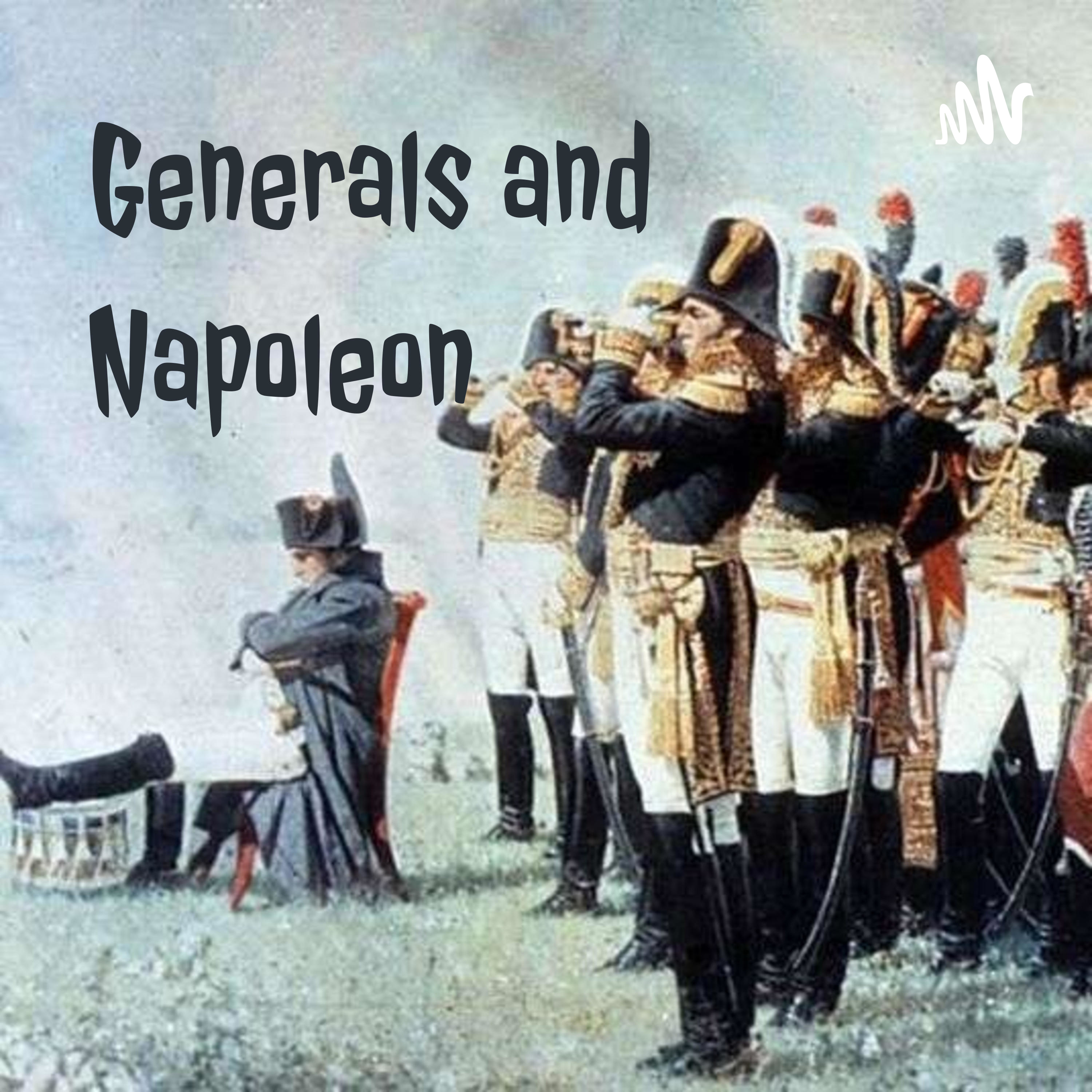
Generals and Napoleon
John W. Viscardo
Shipwrecks and Sea Dogs
Rich Napolitano
French Revolution & Napoleon (Grey History)
Grey History (William Clark)
The Life and Times of Frederick the Great
Alec Avdakov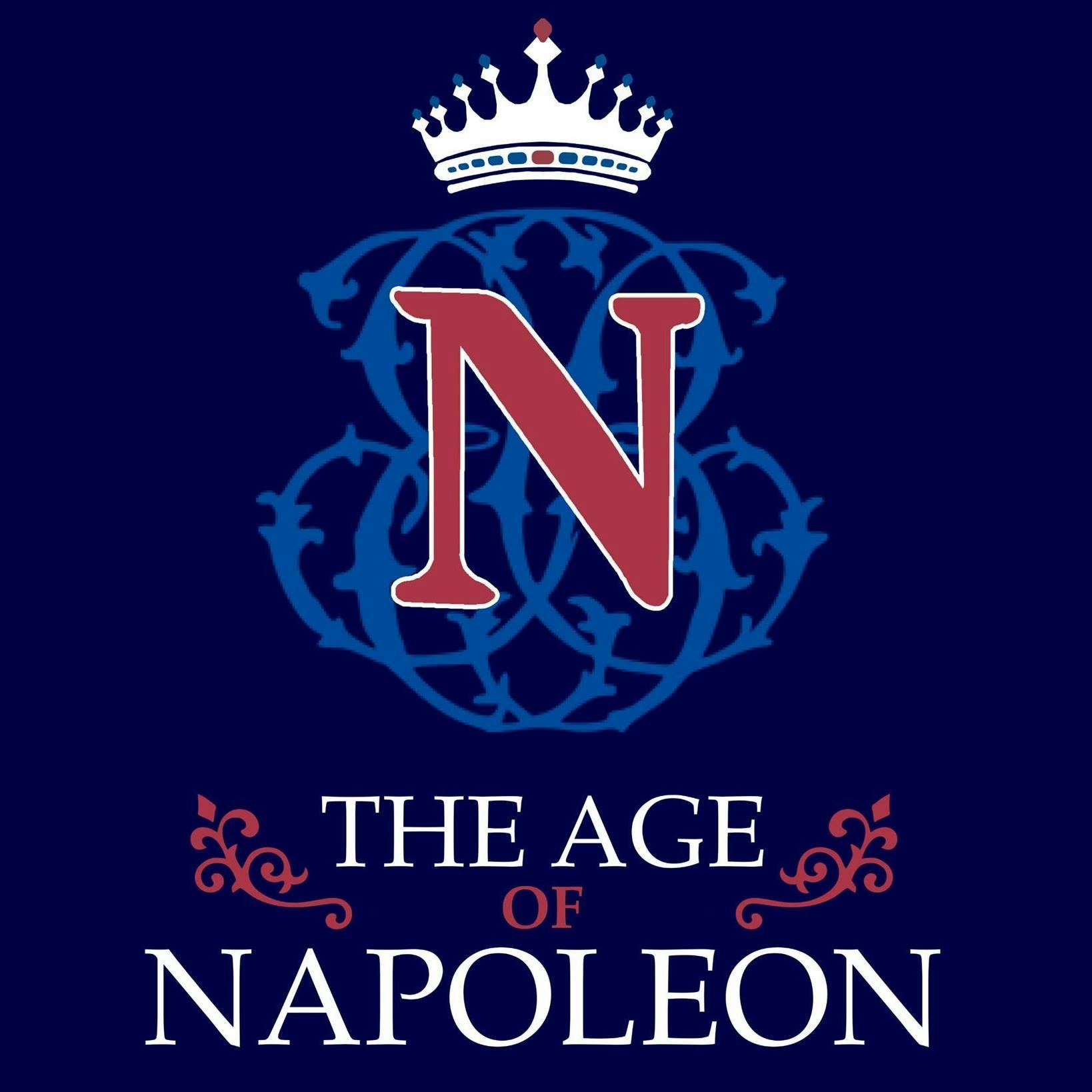
The Age of Napoleon Podcast
Everett Rummage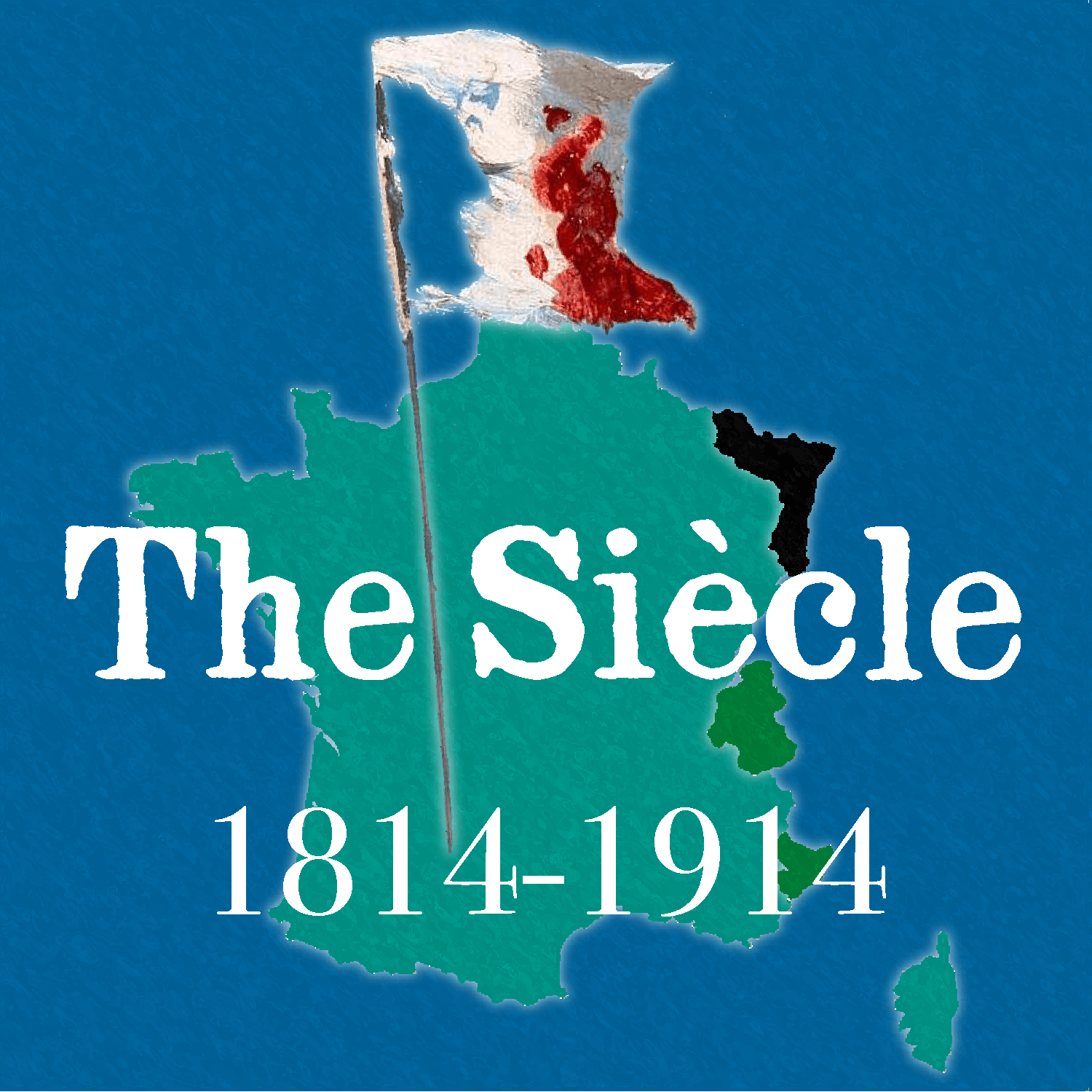
The Siècle History Podcast
Evergreen Podcasts
The Napoleonic Wars Podcast
Zack White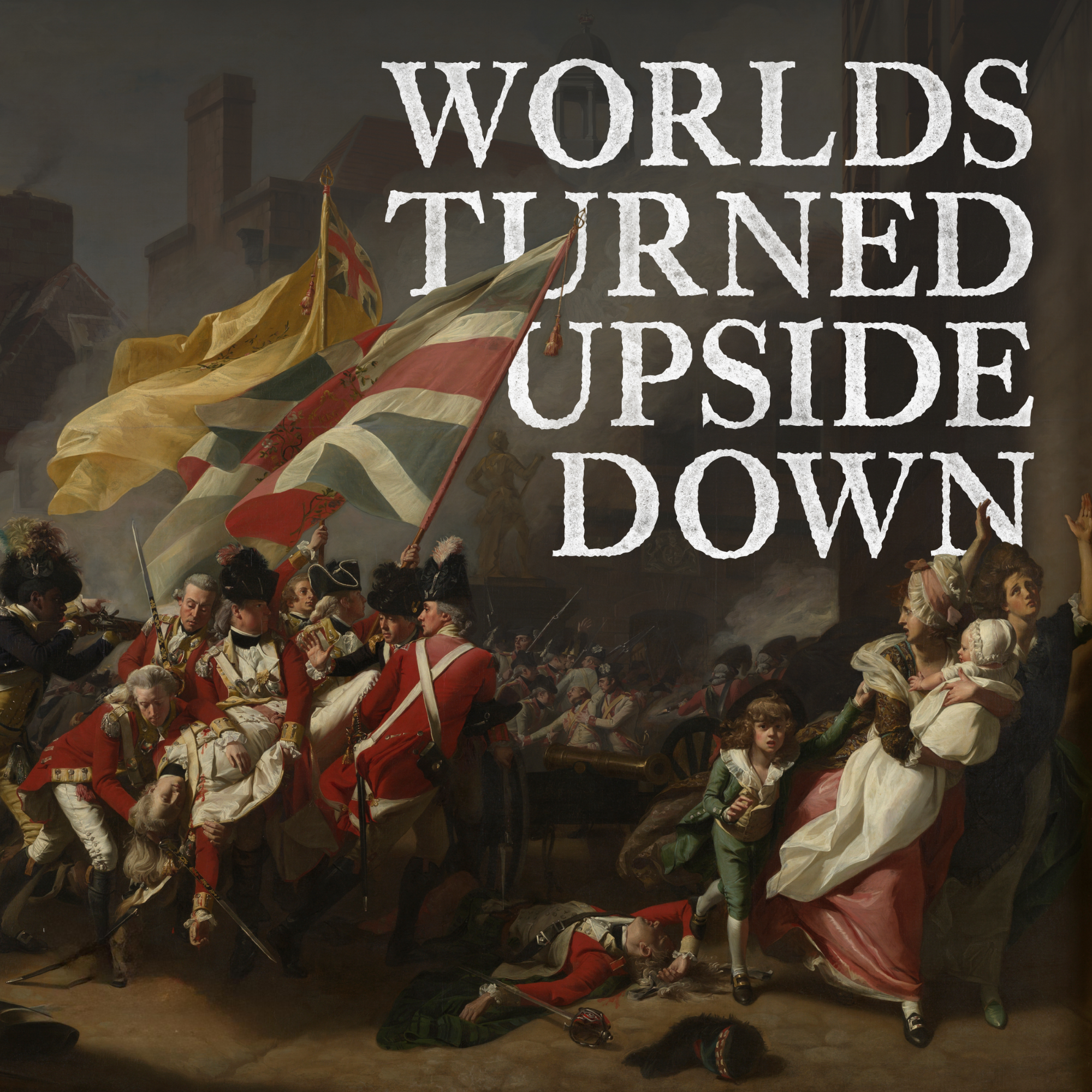
Worlds Turned Upside Down
Roy Rosenzweig Center for History and New Media
Empire-Builders
David Mainayar
Battles of the First World War Podcast
Mike Cunha
New York, Quebec, and The Water Route to the Center of the World
William Matthews
Deep into History
Deep into History
Battle Royale: French Monarchs
Ben Clarke and Eliza Sommers
A History of Japan
Justin Hebert
The French History Podcast
Evergreen Podcasts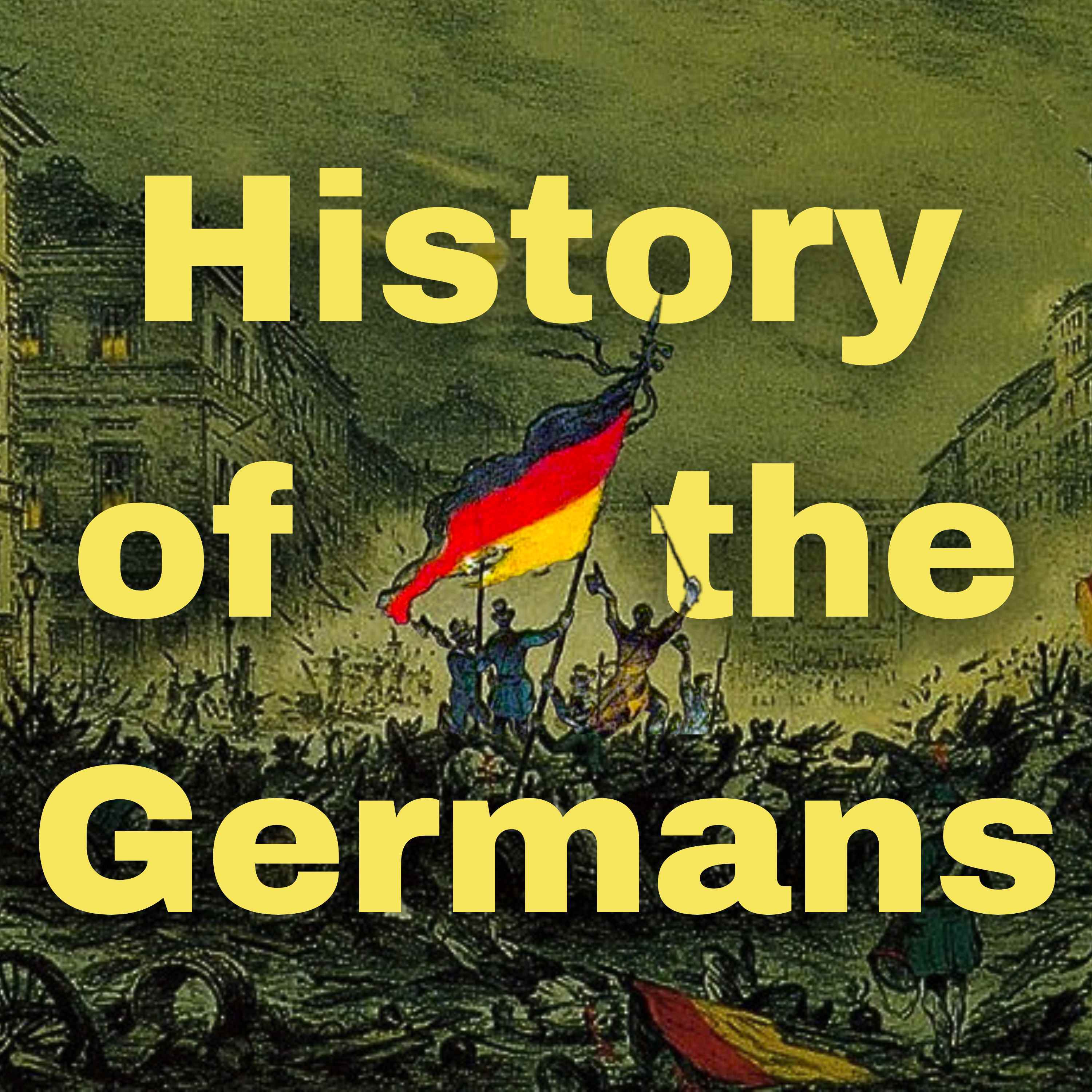
History of the Germans
Dirk Hoffmann-Becking
Half-Arsed History
Riley KnightFrench-Canadian Legacy Podcast
French-Canadian Legacy Podcast
The History of England
David Crowther
Canadian History Ehx
Craig Baird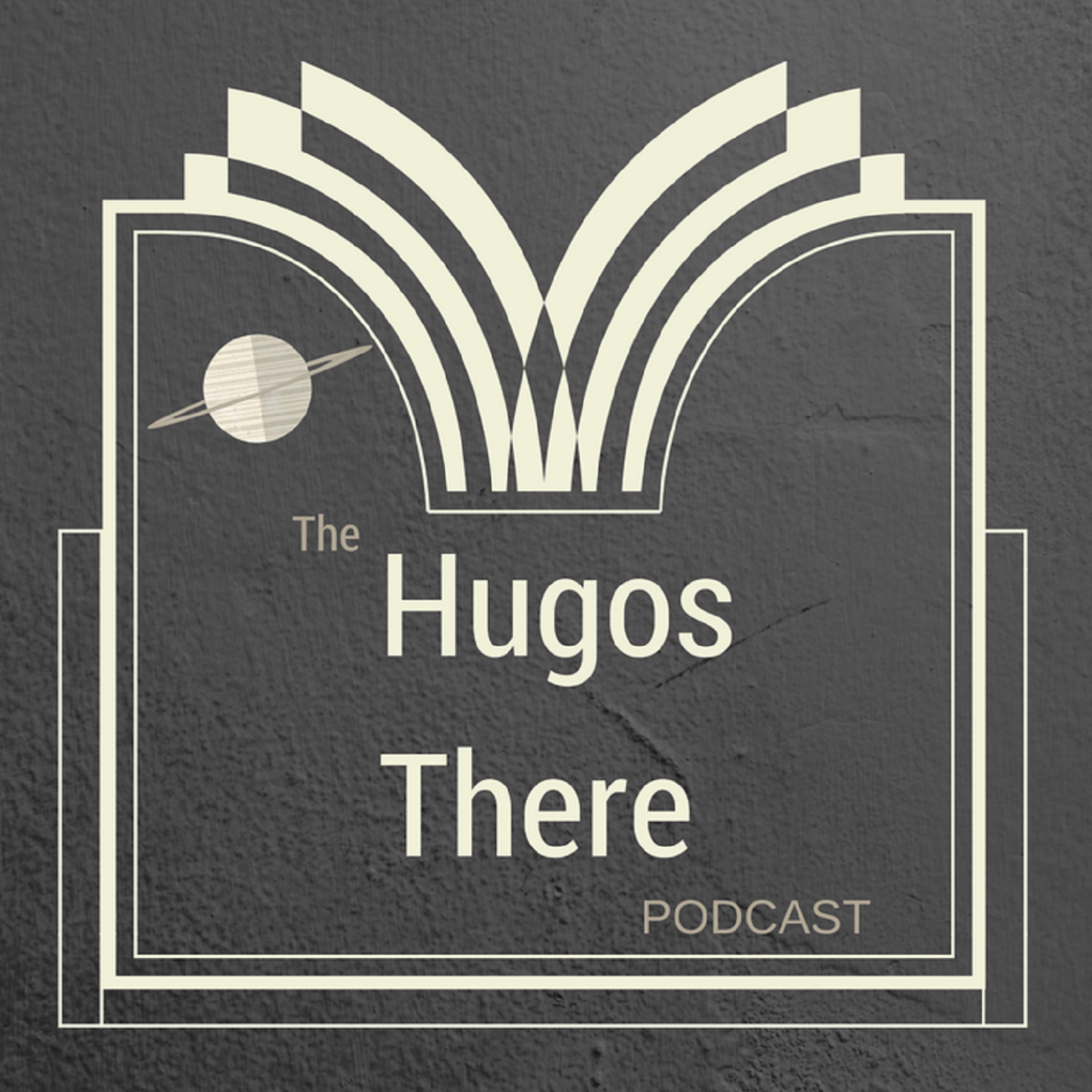
Hugos There Podcast
Hugos There Podcast
Hugo, Girl!
Hugo Girl

